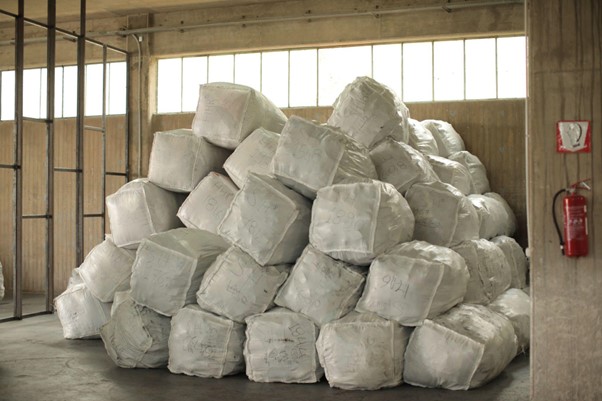
In today’s world the use of the term ‘’Fast Fashion’’ is so commonly used that it tends to affect each and every one of us. Whether we are familiar with the practices of Fast Fashion or not, we can all understand how serious this topic is.
Clothing retailers and huge fashion companies around the world, make cheap and fashionable clothing that meet the young consumers’ needs. Clothing that is really affordable, accessible and fashionable. But what is the cost?
Fast Fashion has a really huge environmental impact. According to the UN Environment Programme (UNEP), the industry is the second-biggest consumer of water and is responsible for about 10% of global carbon emissions – more than all international flights and maritime shipping combined. Unfortunately, fast fashion problems are often overlooked by consumers.
What is Fast Fashion?
The term ‘’Fast Fashion’’ has become more prominent in conversations surrounding fashion, sustainability, and environmental consciousness. This term is used to describe the mass production and consumption of low-cost clothing that mimics the latest fashion trends.
This business model relies on fast turnaround times and constant production to meet the demand for new styles, resulting in a high environmental impact and exploitation of labor in developing countries where the clothes are produced.
The short lifespan of these garments promotes a “throwaway culture,” leading to a significant amount of textile waste in landfills. Consumers are encouraged to shift towards sustainable and ethical fashion practices to minimize the negative impact of fast fashion.
‘’Throwaway Culture’’
Throwaway culture refers to the idea that in modern society, people are quick to dispose of items and products that are no longer wanted or needed instead of repairing or reusing them. This has led to a significant increase in waste and pollution as well as the depletion of natural resources. The concept of throwaway culture can be seen in many areas of modern life, including fashion, electronics, and food.
The Ominous Numbers of Fast Fashion
According to an analysis by Business Insider, fashion production comprises 10% of total global carbon emissions, as much as the European Union. It dries up water sources and pollutes rivers and streams, while 85% of all textiles go to dumps each year. Even washing clothes releases 500,000 tons of microfibres into the ocean each year, the equivalent of 50 billion plastic bottles.
The Quantis International 2018 report found that the three main drivers of the industry’s global pollution impacts are dyeing and finishing (36%), yarn preparation (28%) and fiber production (15%).
According to the UN Framework Convention on Climate Change, emissions from textile manufacturing alone are projected to skyrocket by 60% by 2030.
The fashion industry is the second largest consumer industry of water, requiring about 700 gallons to produce one cotton shirt and 2,000 gallons of water to produce a pair of jeans.
The world consumes around 80 billion new pieces of clothing every year, 400% more than the consumption twenty years ago.
The average American now generates 82 pounds of textile waste each year.
The Environmental Impact
Fast fashion has a significant negative impact on the environment. The production of cheap and easily disposable clothing results in high levels of waste, water pollution, greenhouse gas emissions, and the depletion of natural resources.
Synthetic materials used in fast fashion are often non-biodegradable and release toxic chemicals into the environment during the manufacturing process.
Additionally, the transportation of these clothes to different parts of the world increases carbon emissions and contributes to climate change.
What is the solution?
The solution to fast fashion lies in shifting towards sustainable fashion practices such as using organic and recycled materials, reducing water and energy usage, and ensuring fair labor practices.
Consumers also have a role to play by choosing to buy less, buying secondhand, and investing in higher quality, longer-lasting pieces.
Fashion companies must prioritize transparency and accountability in their supply chains and make a commitment to circular fashion, where products are reused, recycled, or repurposed.
A shift towards a more sustainable fashion industry will not only benefit the planet but also promote ethical and equitable practices for workers.
